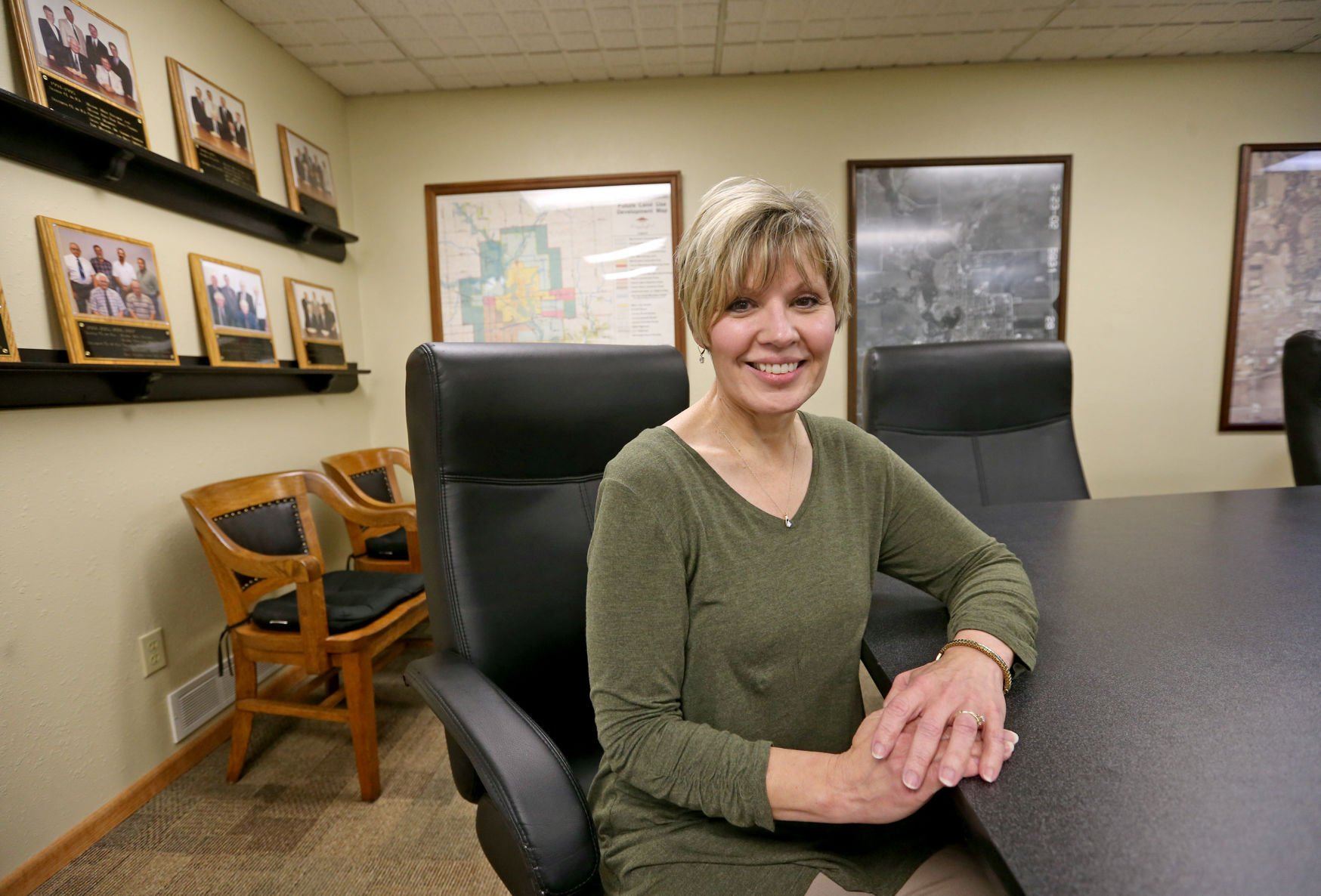MANCHESTER, Iowa — An Iowa crypto-mining business is eyeing Manchester as the site for its largest investment yet.
Simple Mining has outlined plans for a new data-mining facility at the Manchester Industrial Park. The site plan received approval at the most recent Manchester City Council meeting, paving the way for the proposal to move forward.
Simple Mining owner Adam Haynes did not respond to the Telegraph Herald’s request for comment, although he said at the meeting that the Manchester site would be the largest of the Cedar Falls, Iowa-based company’s mining facilities.
“We currently operate six sites across the state … and we’re looking to expand our operations,” Haynes said. “Through some conversations here and with our utility company, we’ve identified that this location would be a great fit for our expansion.”
The site plan calls for 50 8-by-20-foot storage containers that would house computers that run 24 hours a day to solve the algorithmic encryptions needed to “mine” Bitcoin, a form of digital currency that is not dependent on banks or government institutions.
Bitcoin transactions are verified and monitored by independent computers running a secure algorithm to solve blocks of numbers that represent groupings of transactions. These computers race to solve each block with the payout being the next block of bitcoins.
The computers at Simple Mining’s proposed Manchester facility would be new participants in the race. To accommodate the operation, the site plan also calls for 100 cooling buildings, a new electrical substation and a small office space.
“We’re setting up infrastructure to be able to run these computers,” Haynes said. “We basically run the infrastructure. We go get the low cost of power … and then we employ the staff who have the knowledge and know-how to keep the machines running.”
After a brief discussion, Manchester City Council members approved the site plan, 4-0, at their most recent meeting, where Council Member Bryan Gray was absent. A project timeline was not listed in council documents, but the proposal states the facility would create six to eight full-time jobs.
Mayor Connie Behnken said she’s excited for the project and for how the facility could diversify the city’s industrial offerings while simultaneously adding technology-focused jobs she hopes would draw younger people to the area.
“I think it’s a great utilization for this plot of our industrial park, and it’s a neat way to diversify some of the jobs that we see here in the area,” she said. “It’s something unique … and I think it’ll be great for Manchester.”
Before reaching council members, the Simple Mining proposal received approval from the Manchester Planning and Zoning Board in mid-December. Manchester Zoning Administrator Tim Heims said the project qualified as a permitted industrial use, meaning no special zoning adjustment was required.
Prior to its approval, Heims said the board considered the project’s size, energy usage and sound output.
Mining facilities in other parts of the state have drawn resident criticism for the sound emitted by the facilities’ cooling fans, although Heims expressed doubt that area residents will have any such issues given its location.
“It works for where it’s at because it’s kind of tucked away,” Heims said. “With it being in the industrial park, it’s a good way away from any residences.”
Haynes told officials that the Manchester facility would run on a “hydro” system that makes less noise. He also said the mining operations should not cause any health or environmental concerns for area residents.
Crypto-mining operations like Simple Mining’s take a tremendous amount of computing power, which in turn requires massive amounts of energy — raising concerns about environmental sustainability and effects on local power grids.
The U.S. Energy Information Administration estimates that cryptocurrency operations consume between 0.6% and 2.3% of total U.S. electricity use, equaling that used by anywhere from three to six million U.S. homes.
To handle the electrical needs of the Manchester facility, Simple Mining is in conversations with Maquoketa Valley Electric Cooperative to build a new electric substation adjacent to the mining operation.
Maquoketa Valley Electric Cooperative Communications Manager Christie Remley said the project is on standby while Simple Mining does its due diligence on the site. If the project moves forward, the new substation would provide power for current and future electrical needs in the area.
“Putting in a new substation like this ensures that we can provide reliable, affordable power as things continue to grow,” she said. “It really shows the importance of having a utility partner at the table.”
Haynes told the Manchester council that Simple Mining operations would be able to temporarily shut down its operations as needed so as not to interfere with power availability during times of high demand.
As interest in local development grows, others in northeast Iowa are working to regulate data-mining facilities. Such facilities often do not fall under current zoning codes given their new and unique nature, meaning their regulation can differ between counties and individual municipalities.
In September, Jackson County Supervisors enacted a moratorium on data-mining facilities after hearing of companies interested in developing local mining centers. Zoning Administrator Lori Roling said the move was not meant as a full stop, but a pause to allow for further fact finding.
“There were several unknowns for us,” Roling said. “The (centers) were something new, and we didn’t really know what they were and if we needed to put a specific ordinance in place.”
The moratorium was lifted in November after supervisors and county staff had time to learn more about the centers and their potential impacts, Roling said.
So far, two companies have expressed preliminary interest in acquiring land in Jackson County for data mining. Roling said the county will consider those projects and other similar proposals on a case-by-case basis for conditional use permits.
Mining facilities are not listed as permitted facilities in the zoning code for Dubuque and Clayton counties, although zoning officials in both said they have not yet received many serious inquiries on the matter.


